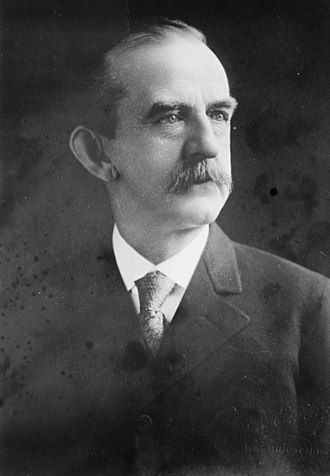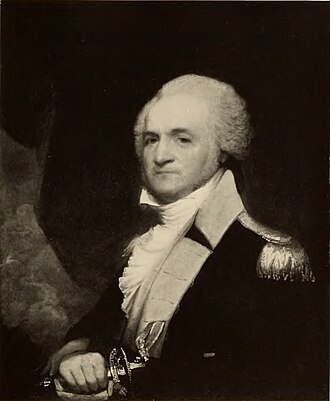Discover Your Roots
SIGN UPDiscover Your Roots
SIGN UPWinthrop is a male name of English origin, meaning "From Wymund's Farm." This name is associated with strength and resilience, reflecting its agricultural roots. It has been used as a surname and a given name for notable individuals, including Winthrop Rockefeller and Winthrop W. Aldrich. Additionally, Winthrop is the name of various places in the United States, such as Winthrop, Massachusetts, and Winthrop, Washington, as well as locations in England, Canada, and Australia. The name has also been utilized in different contexts, including a comic strip, a dormitory at Harvard University, pharmaceuticals company, and educational institutions like Winthrop University and NYU Winthrop Hospital. The name Winthrop carries a sense of tradition and history, representing a connection to farming and community.

Winthrop Niles Kellogg (April 13, 1898 – June 22, 1972) was an American comparative psychologist known for his extensive research on the behavior of various intelligent animal species. Born in Mount Vernon, New York, Kellogg initially pursued undergraduate studies at Cornell University before serving in the US Army Air Service during World War I. He later obtained his Master's and doctorate degrees in psychology from Columbia University, where he demonstrated remarkable productivity as a researcher. Kellogg's academic career led him to Indiana University Bloomington, where he established a research laboratory focused on studying conditioned behavior in dogs. His diverse research interests also encompassed areas such as spinal conditioning, maze learning by water snakes, fear in animals, and emotion's impact on muscular steadiness. However, Kellogg's most renowned project was his comparative study involving an infant chimpanzee named Gua, which garnered significant attention. Through his innovative spirit and prolific scholarly contributions, Kellogg left a lasting impact on the field of comparative psychology.

Winthrop Murray Crane, also known as W. Murray Crane, was an influential American businessman and Republican Party politician. He served as the 40th governor of Massachusetts from 1900 to 1903 and represented the state in the United States Senate from 1904 to 1913. Crane was born in Dalton, Massachusetts, in 1853, and later became involved in his family's paper business, Crane & Co. In 1879, he secured an exclusive government contract to supply paper for United States currency, a monopoly the company still holds. Crane's political career began in the 1890s, and he became a dominant figure in the local, state, and national Republican Party. As governor, he was known for his fiscal conservatism and business-like management, earning favor even among Democrats. He successfully defused a Teamsters strike and was called in by President Theodore Roosevelt to mediate the 1902 Coal Strike. Crane also served in the United States Senate and advised Presidents Theodore Roosevelt and William Howard Taft. His influence extended to mentoring future President Calvin Coolidge. Crane was a significant shareholder in the New York Central Railroad and was known for his political astuteness and dislike of campaigning and speeches. He passed away in 1920, leaving a lasting impact on American politics and business.

Winthrop Williams Aldrich (November 2, 1885 – February 25, 1974) was an influential American banker, scion of a prominent political family, and U.S. Ambassador to the United Kingdom. Born in Rhode Island to Senator Nelson W. Aldrich and Abigail Pearce Truman Chapman, he pursued higher education at Harvard University, obtaining a bachelor's degree in 1907 and a J.D. degree in 1910. During World War I, he served in the Naval Reserve and was involved in various naval assignments. Aldrich went on to serve as president and chairman of the board of Chase National Bank from 1930 to 1953, and also held the position of commodore of the New York Yacht Club. His philanthropic efforts during and after World War II earned him recognition, including the King's Medal for Service in the Cause of Freedom and an honorary Knight Grand Cross of the British Empire. In 1953, he was appointed as the U.S. Ambassador to the United Kingdom under President Dwight D. Eisenhower. Aldrich was also known for his esteemed personal life, and he received several honors, including an honorary Knight Grand Cross of the Order of the British Empire. He passed away at his residence in New York City in 1974.

Winthrop Pickard Bell (May 12, 1884 – April 4, 1965) was a renowned Canadian academic and historian, known for his significant contributions to philosophy and espionage. Born in Halifax, Nova Scotia, Bell pursued his education at prestigious institutions like Mount Allison University, McGill University, and Harvard University, where he studied under the tutelage of Josiah Royce. His scholarly pursuits led him to Germany, where he completed his doctoral studies at the University of Göttingen under the guidance of Edmund Husserl.During World War I, Bell was held in a civilian internment camp in Germany for over three years, an experience that deeply impacted him. His insights and warnings about the harsh terms of peace for Germany attracted the attention of MI6, leading to his recruitment as a spy. Bell's espionage career included penetrating post-war Germany's political factions, providing crucial intelligence to the Allies, and issuing warnings about potential uprisings and threats. His pivotal role in understanding the volatile situation in Germany and his efforts to mitigate the consequences of the Treaty of Versailles showcased his dedication to international stability.In addition to his espionage endeavors, Bell made significant contributions to historical research, particularly focusing on the mid-18th-century immigrants to Nova Scotia. His notable work, "The 'Foreign Protestants' and the Settlement of Nova Scotia," published in 1961, remains a valuable resource in the field. Despite his impactful espionage career, Bell's academic prowess and historical research

Winthrop Sargent (May 1, 1753 – June 3, 1820) was an influential American politician, military officer, and writer. He served as Governor of Mississippi Territory from 1798 to 1801 and briefly acted as Adjutant General of the U. S. Army in 1791. Born in Gloucester, Massachusetts, Sargent graduated from Harvard College before the Revolution and served in the American Revolution, participating in significant battles. He was involved in the surveying of the Seven Ranges and played a crucial role in the formation of the Ohio Company of Associates. Additionally, he was appointed as the first Secretary of the Northwest Territory. Sargent's contributions extended beyond military and political spheres. He was an elected Fellow of the American Academy of Arts and Sciences and a member of the American Philosophical Society. Despite being dismissed from his position as territorial governor by President Thomas Jefferson, Sargent continued his endeavors in the private sector, becoming a major plantation owner in Natchez, Mississippi. Sargent's personal life was marked by marriages and the birth of several children. He passed away on June 3, 1820, in New Orleans, leaving a legacy that extended to subsequent generations, including his grandson, the writer Winthrop Sargent (1825–1870).
All images displayed on this page are sourced from Wikipedia or Wikimedia Commons.We use these images under their respective Creative Commons or public domain licenses. Wherever applicable, author attributions and license information are provided. If you believe an image is used incorrectly or outside its license terms, please contact us so that we can review and correct the issue.